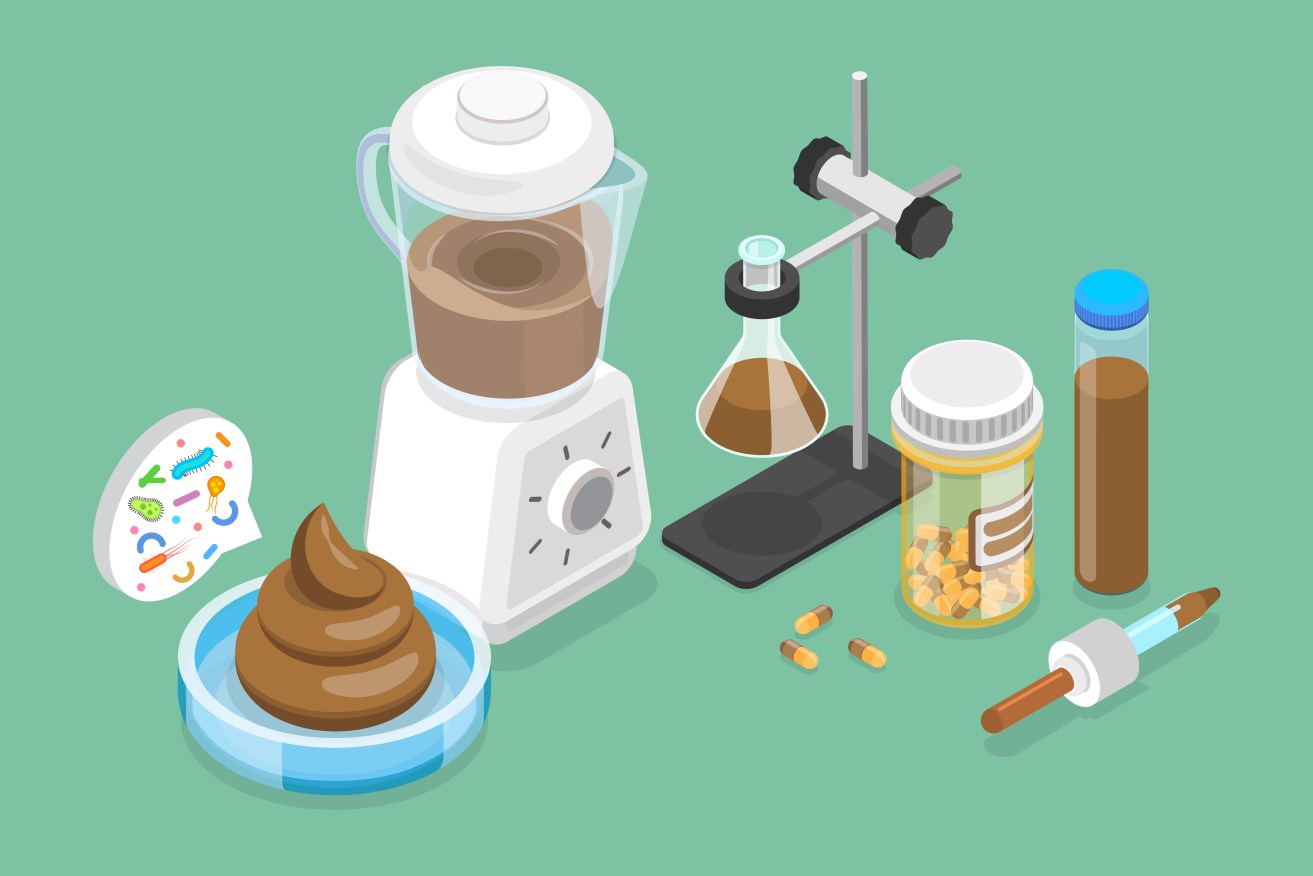Breakthrough: Poo transplant can slow Parkinson’s symptoms


Fecal transplants. It's a tough job, but somebody's got to poo it. Photo: Getty
In 2019, in a review, Parkinson’s disease researchers from the University of Groningen, The Netherlands, asked a provocative question:
“Fecal transplantation to treat patients with Parkinson’s disease: Hope or hype?”
They noted that fecal microbiome transplantation (FMT) – where a sample of healthy gut bacteria is transplanted into a person with an unhealthy gut – was a potential option for treating constipation and restoring the microbiome of patients with Parkinson’s disease (PD).
Pre- and pro-biotics were also flagged as potential treatment options.
In fact, in their paper, the Groningen researchers noted some success had been achieved with FMT using two types of bacteria in Parkinson’s patients:
“Administration of Lactobacillus and Bifidobacterium over a period of 4-12 weeks has repeatedly proven to be effective in treating constipation in PD.”
However, “no solid clinical data are available about the possible effects of these probiotic treatments on motor symptoms or progression of PD”.
The holy grail in Parkinson’s treatment
Short of an outright cure, it’s the slowing or making less severe the motor symptoms – the balance problems, stiffness, and tremors by which the disease is commonly diagnosed – that is something of a holy grail in PD research.
But the Groningen scientists warned that – regarding FMT as a potential pathway to motor symptom reversal – clinical data was scarce, and more research was needed before supporting their use.
In the meantime, they noted:
“Following promising results of pre-biotics in animal studies, the first clinical trial on the use of FMT in PD patients is now underway at the University of Ghent.”
This first ever trial, with 46 PD patients, began a year later, in December 2020. The results were published this week and have been described as ground-breaking.
In a statement from Ghent, Dr Arnout Bruggeman, first author of the study, said:
“Our results are really encouraging. After 12 months, participants who received the healthy donor stool transplant showed a significant improvement in their motor score, the most important measure for Parkinson’s symptoms.”
In other words, motor symptoms were seen to improve.
What’s the connection between gut and brain?
The researchers from Ghent University, the neurology department at University Hospital Ghent, and the VIB-UGent Center for Inflammation Research break it down this way in a prepared statement:
- In Parkinson’s disease, a protein called alpha-synuclein misfolds and clumps together.
- Those clumps then damage dopamine-producing nerve cells in the brain, which leads to the typical Parkinson’s symptoms.
- The protein clumps are believed to be formed in the gut wall at a very early stage of the disease. From there they reach the brain cells via the vagus nerve. This nerve connects the gut and the brain.
- This process can be influenced by gut bacteria.
- Emerging research suggests a link between Parkinson’s disease and the gut microbiome, the trillions of bacteria residing in our intestines.
- Patients with Parkinson’s often have an altered gut microbiome compared to healthy individuals. And they often show more intestinal inflammation and a disrupted intestinal barrier.
Hence the team “wanted to investigate whether a fecal microbiota transplant (FMT) with healthy gut bacteria from a donor could have a significant impact on the evolution of Parkinson’s disease symptoms over one year”.
About the study
The clinical study, named GUT-PARFECT, recruited participants with early-stage Parkinson’s disease and healthy donors who donated their stool.
All participants with Parkinson’s disease received the stool through a tube that was inserted through the nose. It was then advanced into the small intestine to deliver the mixture directly.
After 12 months, the actively treated group showed significantly more improvement in motor symptoms. This was compared to a placebo control group.
The improvement in motor symptoms “became even more pronounced between the sixth and twelfth month after the transplant”. This suggests “a potential long-lasting effect”.
Additionally, participants had less constipation.
More research is needed to determine whether this treatment also slows the progression of the disease.
The sooner, the better.








